Several ministers vote against rules in protest; Health Ministry to start pilot serological testing for children under 12 so as to include those with antibodies in pass system
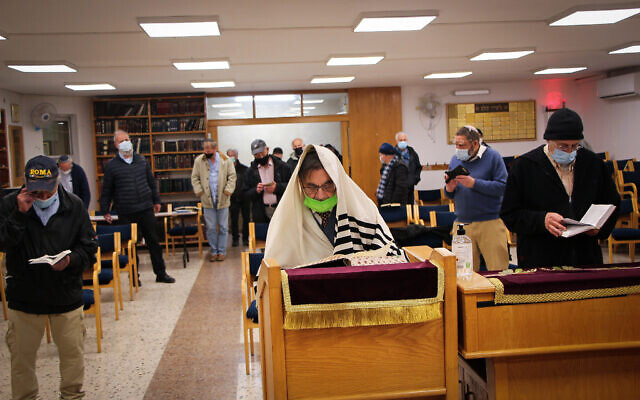
Ministers gave the final go-ahead to a plan that will significantly expand restrictions on gatherings under the Green Pass system meant to tamp down runaway coronavirus case numbers, despite misgivings over an 11th-hour decision to exempt places of worship.
Starting Sunday, gatherings of any size, indoors and out, will be limited to those who have been vaccinated, recovered from the virus, or who present a negative COVID test, under the Green Pass system, which will also extend to hotels, restaurants and gyms.
While the plan originally included synagogues and other houses of worship, the plan presented to ministers for a vote Thursday night exempted prayer services with fewer than 50 participants, drawing protests from some cabinet members.
Among those voting against the new rules in protest of the religious exemptions were Foreign Minister Yair Lapid and Finance Minister Avigdor Liberman, both of whom came under fire this week after it emerged that they had skipped participating in coronavirus cabinet meetings.
The decision to exempt religious services stemmed from an agreement between Health Minister Nitzan Horowitz and deputy Attorney General Raz Nizri, who had raised concerns over clamping religious freedom by effectively barring the unvaccinated from communal prayer.
Other ministers were angry they were not informed of the decision ahead of the meeting. Joining Lapid and Liberman in voting against were Internal Security Minister Omer Barlev, Education Minister Yifat Shasha-Biton and Economy and Industry Minister Orna Barbivai.
Meanwhile, Liberman reacted to criticism that he and Lapid did not take part in the high-level coronavirus cabinet, saying that the Fincae Ministry was represented by Hamad Amar, who serves as a minister in the Treasury.
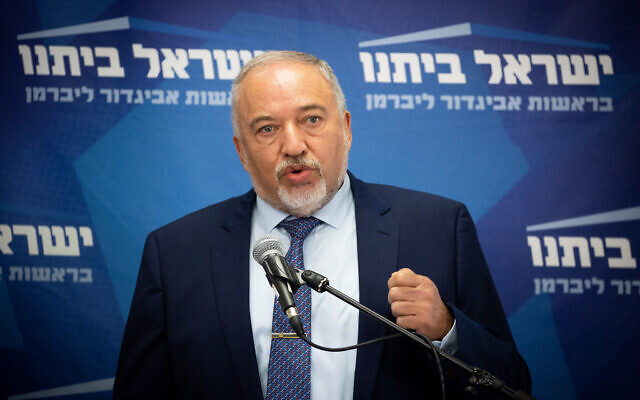
Liberman also said it was important that the professionals make the decisions on dealing with the pandemic and receive backing from the politicians.
The cabinet vote gave final authorization to a decision made Tuesday by the coronavirus cabinet to expand the Green Pass system to all gatherings not merely those with over 100 people, as is currently the case.
The system will be further expanded on August 20 to include children under 12, with the delay necessary in order to allow the Health Ministry to get a testing system in place.
The Ministry said Thursday that it was beginning a pilot project from next week to provide serological tests to children to discover those who may have had the virus without knowing it and have significant antibody levels.
These children would be included in the Green Pass system and would be exempt from having to go into isolation if exposed to a known virus carrier.
The pilot system was being tested in Elad, Bnei Brak, Modiin Illit and Beit Shemesh, all largely ultra-Orthodox cities that had had very high numbers of COVID cases.
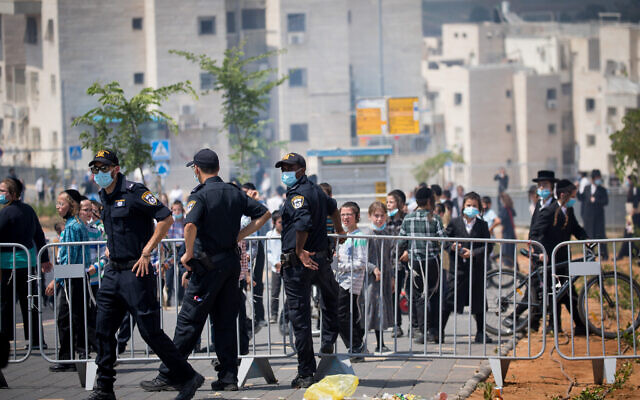
Ultra-Orthodox schools also begin their school year on August 8th, while most other schools start September 1.
The coronavirus cabinet on Tuesday also approved a series of restrictions under which masks are to be required outdoors for gatherings of 100 people or more; in-office work for public servants is to be scaled back to 50 percent, with the private sector encouraged to allow employees to work from home; and vaccinated caretakers of infected children under 12 years old are to be required to self-isolate.
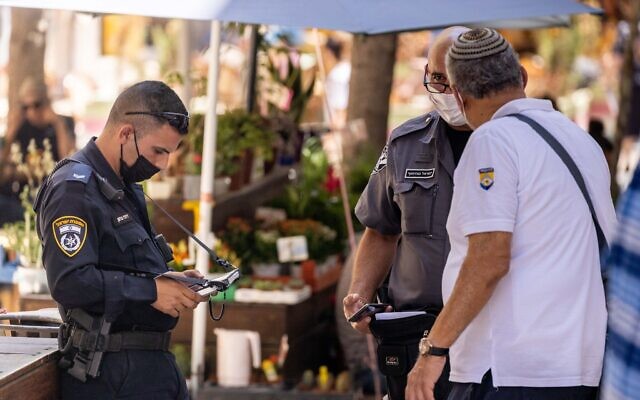
The government also plans to step up advocacy to encourage Israelis to stop “shaking hands, hugging, kissing, and avoid any gathering indoors that is not essential,” according to a government statement. It will also encourage those over 60 to avoid gatherings or be in the same room with the unvaccinated.
The new restrictions are an attempt to slow contain the renewed COVID-19 outbreak, which has been blamed on the fast-spreading Delta variant.
Earlier Thursday, Prime Minister Naftali Bennett assured the public that, despite reports to the contrary, there is no shortage of COVID-19 vaccines in Israel.
“Israel has a sufficient stock of vaccines both at the present and for future needs. Several shipments have arrived in recent days; this will continue,” the Prime Minister’s Office said in a statement.
The statement said that the exact number of vaccines in Israel’s stockpile and in future shipments cannot be made public “for reasons of confidentiality.”
Speaking to Channel 12 news on Thursday evening, Dr. Sharon Alroy-Preis, the head of the Health Ministry’s public health department, said there may be delays of a few days in making appointments, but that supplies will not run out.
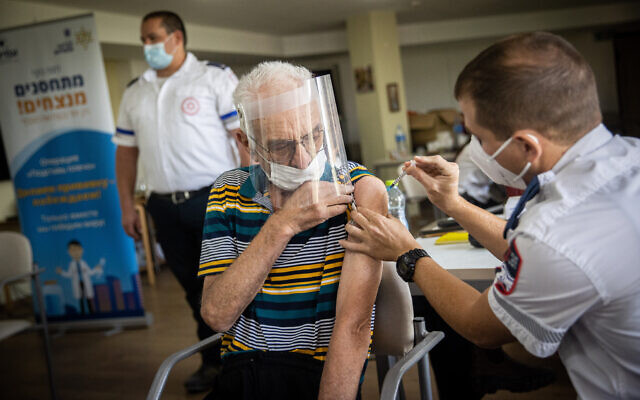
Alroy-Preis also said that a nationwide lockdown in September, over the Jewish High Holidays, is not inevitable.
“It’s obviously an option, but it’s in our hands,” she said. The current health rules, she added, won’t drive down infection rates considerably, but are meant to “buy time” for children and teenagers to get vaccinated and to inoculate those over 60 years old with a booster shot.
“Lockdown is not a strategy, it’s a tactic, a step that you try to avoid unless you really, really have to [employ it],” Alroy-Preis said. “Right now, we don’t have to. We need to run and get vaccinated.”
A shipment of hundreds of thousands of Pfizer vaccines is expected to arrive in Israel on Saturday night, according to Channel 12.
Demand for a third booster dose of the COVID vaccine among those over age 60 has been high since the campaign officially launched on Sunday. According to the latest Health Ministry figures, 295,585 had people received a third dose as of Thursday evening. That accounts for nearly a fifth of the adults in that age group.
As of Thursday evening, there were 25,467 active COVID cases in Israel, with 461 hospitalized, 262 in serious condition and 51 on ventilators. Since Sunday, 32 people with COVID have died in Israel.
As reported by The Times of Israel
